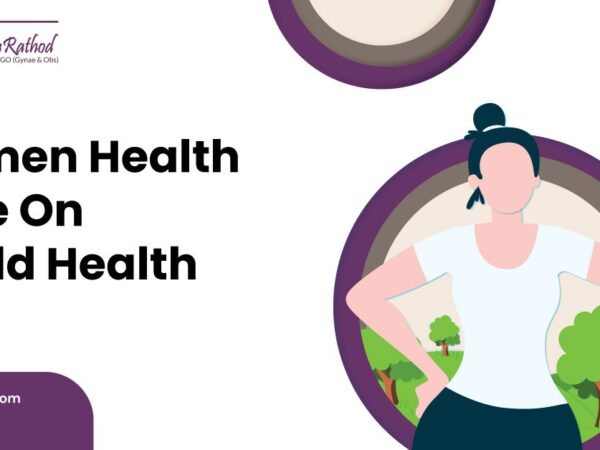Polycystic Ovary Syndrome (PCOS) Awareness Month is observed every September to raise awareness about this common hormonal disorder that affects people with ovaries. PCOS is characterized by various symptoms and can have a significant impact on a person’s overall health and well-being.
Polycystic ovary syndrome is a complex condition. It affects many women differently. Understanding your PCOS type is essential for effective management and treatment. Here, you can explore the four main types of PCOS. Here, you can also learn about the renowned PCOS specialist in Thane.
1. Insulin-Resistant PCOS:
Insulin resistance is the most common type of PCOS. It affects about 70% of women with the condition. It occurs when high insulin levels hinder ovulation and stimulate the ovaries to produce excess testosterone. Factors such as excessive sugar consumption, and a diet high in trans fats can contribute to this type of PCOS.
Signs of Insulin-Resistant PCOS:
- Constant cravings for sugary foods and carbohydrates.
- An apple-shaped body with weight concentrated around the middle.
- An A1C of 5.7 or higher indicates elevated blood sugar levels.
- Abnormal glucose tolerance test results.
Treatment for Insulin-Resistant PCOS:
To manage insulin-resistant PCOS, you should make dietary changes such as reducing sugar intake. Incorporating resistance training exercises into your routine can also help improve insulin sensitivity. Consider using supplements like inositol and practice intermittent fasting. Be patient; it may take up to nine months to see significant improvements. Avoid using oral contraceptives, as they can interfere with sugar regulation.
2. Pill-Induced PCOS:
Pill-induced PCOS is the second most common type and occurs when birth control pills suppress ovulation. Some women may experience prolonged suppression of ovulation even after discontinuing the pill, leading to this type of PCOS.
Signs of Pill-Induced PCOS:
- Irregular periods after having regular cycles before taking birth control pills.
- Absence of menstruation after stopping the pill.
- Elevated levels of LH (luteinizing hormone) in the blood.
Treatment for Pill-Induced PCOS:
Natural treatments like licorice and peony can help stimulate ovulation. But it’s advisable to work with a naturopathic doctor due to potential side effects. Avoid licorice if you have high blood pressure.
3. Inflammatory PCOS:
Chronic inflammation can disrupt normal bodily functions, including ovulation, and produce imbalanced hormones in inflammatory PCOS. Inflammation can also trigger increased testosterone production, resulting in visible physical changes.
Signs of Inflammatory PCOS:
- Extreme fatigue.
- Frequent infections.
- Joint pain.
- Digestive problems.
- Chronic headaches.
Treatment for Inflammatory PCOS:
Managing inflammation involves:
- Reducing stress.
- Avoiding toxins such as BPA.
- Eliminating inflammatory foods like dairy, wheat, and sugar.
Consider taking a magnesium supplement for its anti-inflammatory properties and a probiotic to support gut health.
4. Adrenal PCOS:
Adrenal PCOS is the least common type, accounting for approximately 10% of cases. It is characterized by elevated levels of adrenal androgens, specifically DHEAS. It often triggered by an abnormal response to stress.
Signs of Adrenal PCOS:
- Symptoms that don’t fit other PCOS types.
- Elevated DHEAS levels (normal testosterone and androstenedione).
Treatment for Adrenal PCOS:
The primary approach to managing adrenal PCOS is stress reduction. Incorporating a magnesium supplement may also be beneficial.
Understanding your PCOS type is the first step toward effective management and treatment. PCOS can lead to complications if left untreated. Consult a PCOS specialist, like Dr. Sujata Rathod from Nurvinaari, an expert in women’s health. Consider consulting an endometriosis doctor in Thane if you suspect overlapping symptoms.
PCOS Awareness Month: PCOS Awareness Month is dedicated to increasing awareness about PCOS, educating individuals and healthcare professionals about its symptoms and effects, and advocating for improved diagnosis and treatment options.
Goals of PCOS Awareness Month: The primary goals of PCOS Awareness Month are to:
- Educate: Provide information about PCOS, its symptoms, and its potential impact on physical and mental health.
- Advocate: Raise awareness about the importance of early diagnosis and effective management of PCOS.
- Support: Offer support and resources for individuals living with PCOS, as well as their families and friends.
Also Check: A Diet For Pregnant Women With PCOS
- PCOS awareness efforts go beyond September, and it’s important to continue supporting individuals with PCOS throughout the year. Encourage those affected by PCOS to seek medical care and connect with support groups and resources.
PCOS Awareness Month plays a crucial role in shedding light on this common, yet often underdiagnosed and misunderstood condition. By increasing awareness and understanding, it can help individuals with PCOS receive the support and care they need to manage their symptoms and improve their quality of life.
It’s important to remember that PCOS is a complex and variable condition, and not all individuals fit neatly into one of these categories. Many people with PCOS may exhibit a combination of features from multiple types. Additionally, healthcare providers may use different criteria to diagnose and classify PCOS, so it’s crucial for individuals to work closely with their healthcare team to determine the most appropriate management and treatment plan for their specific needs.



Comments are closed.